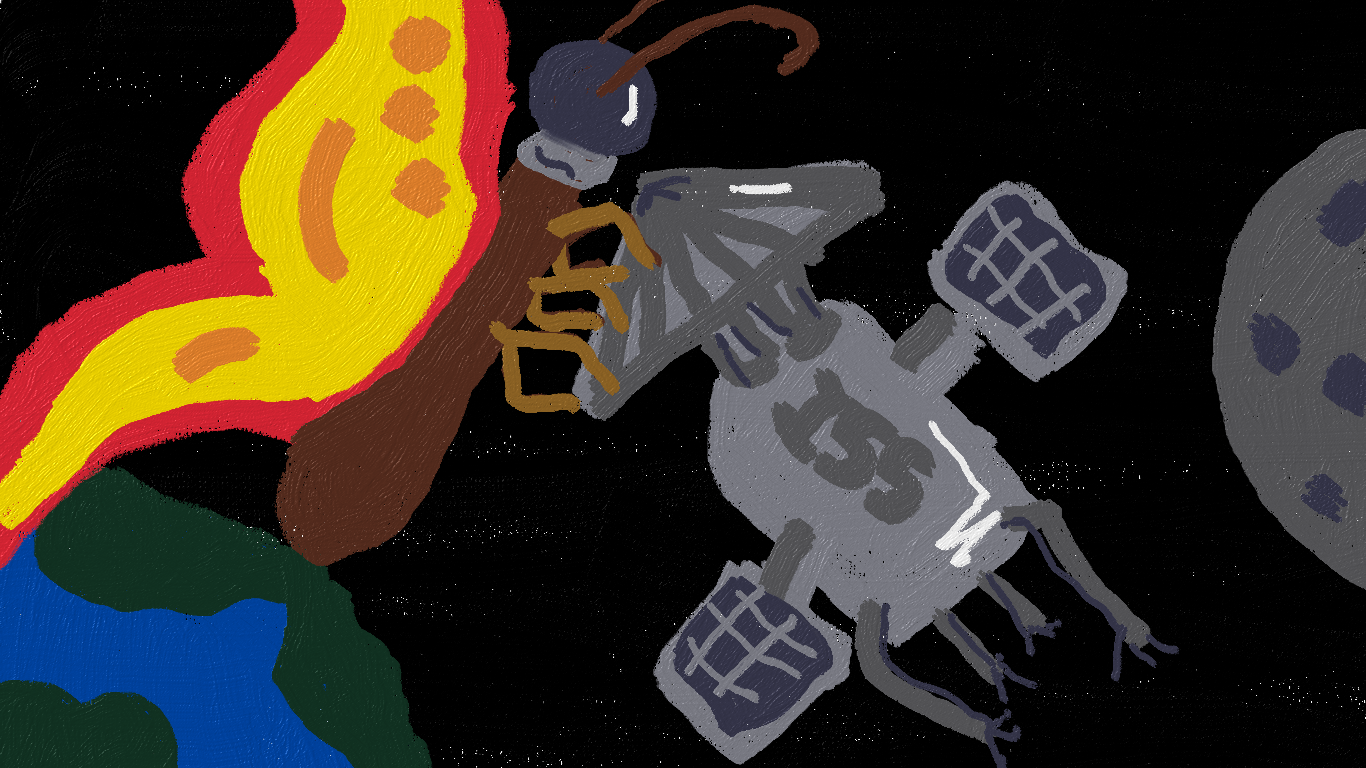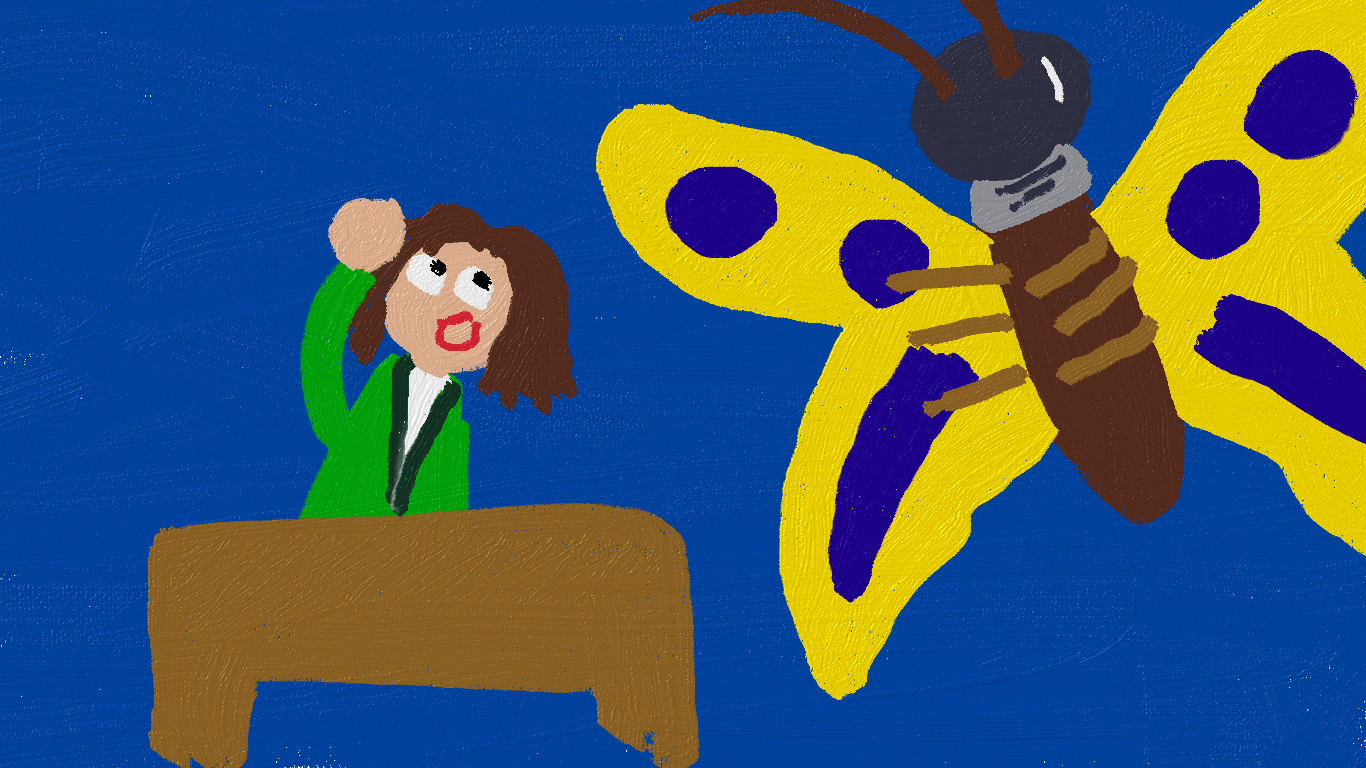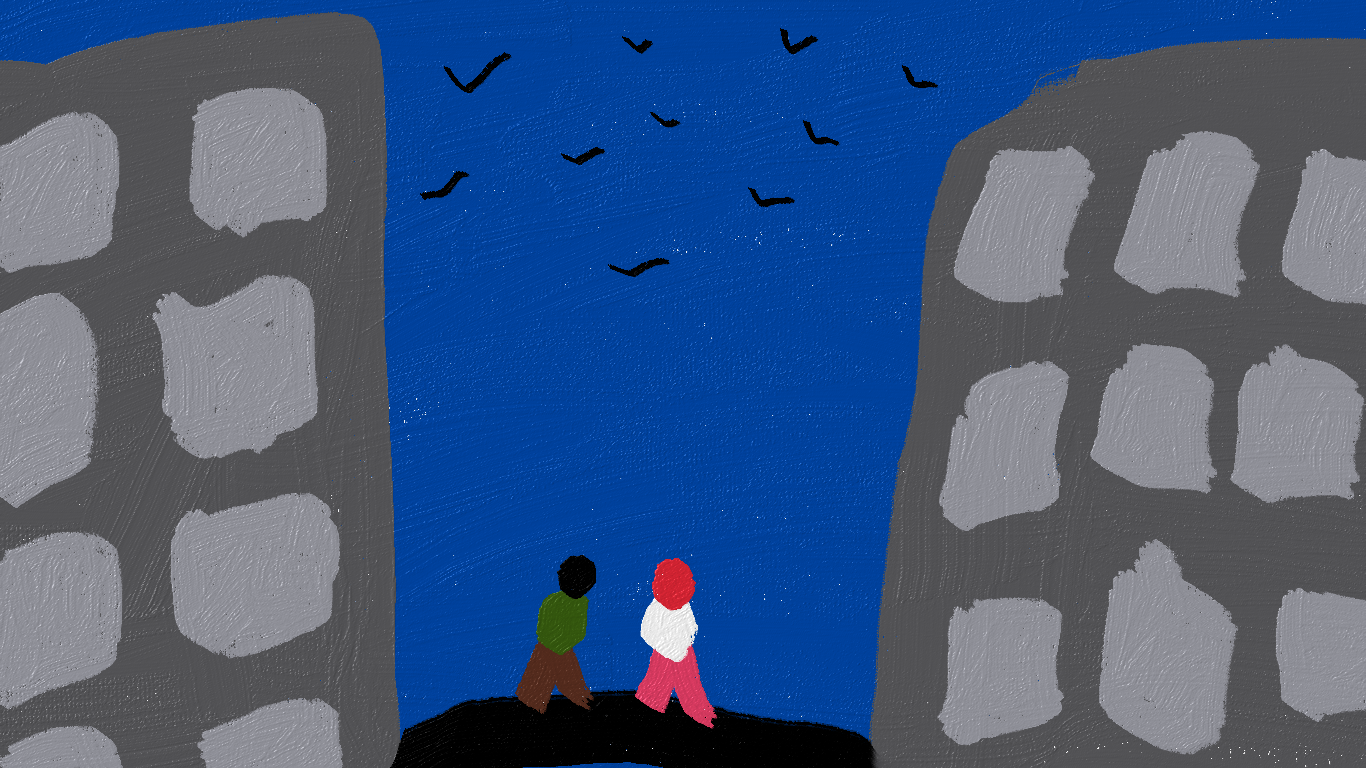Dear Language Nerd,
Duplication I get, sure, but what’s up with reduplication?
-Carl S., Jr.
***
Dear Carl,
Reduplication is when sounds or words are said twice in a row. In English, we have a few set words that use reduplication — frou-frou, razzle-dazzle, bye-bye — that sort of thing. We also have the more exciting use of reduplication as a living process, where speakers can reduplicate any words they want to get a particular effect. There are three main ways that we use reduplication, two that come up relatively rarely and one that gets used all the time. Starting with the less important ones:
1. The “___er and ___er” Formation. This is used to show something changing over time, like “the penguins became sadder and sadder” or “the rebels got bolder and bolder” or “the butterflies grew larger and larger.” Reduplicating makes sure that whoever’s listening to you understands that one thing is now different from how it used to be. Just saying “the butterflies grew larger” leaves this ambiguous – larger than they were before? Larger than the moths? Larger than the space station?
You can reduplicate verbs with “and” to get a different meaning, too. “We looked” is different from “we looked and looked” — the second is a continuous action, over a longer time. But because these forms require throwing “and” into the mix, I don’t consider them reduplication at its finest. For higher orders, we move on to…
2. Reduplication-Reshmuplication. For reasons I cannot comprehend, linguists usually refer to this as “shm-reduplication” instead of “reshmuplication.” This is when the reduplicated word gains a “shm” at the beginning, as in “fancy-shmancy” or “oranges-shmoranges.” The “shm” usually goes right at the start of the second word, but if the word starts with a weak syllable the shm-user may skip to a stressed syllable, like I did with “reshmuplication.” Shm-ing a word is usually dismissive or deprecating, as in “What are we going to do about all these grizzlies?” “Ah, grizzlies-shmrizzlies.” Though it can also be used to lighten the mood if a situation seems unbearably awful (same example applies, just imagine more quavering in the voices).
3. Contrastive Reduplication. For REAL-real. The big one. You’ve probably used this a half-dozen times already this week, and it’s only Tuesday. For this one, you say the exact same word twice, with heavy stress the first time. This tells the listener that whatever you’re specifying is a prototypical example of its group. Like, if Betty-Lou says that Buster is a DOG-dog, she’s saying that he’s a golden lab or maybe a big ol’ mutt, not a more unusual dog like a papillion. He’s extremely normal in his dogness. Stress on just one word means that the speaker is contrasting that word with other different items; reduplication shows contrast with similar items. Aunt Susie might say she’s bringing a SALAD (not an entrée or a dessert). Or Aunt Susie might say she’s bringing a SALAD-salad (not a tuna salad or a pasta salad but a green leafy tomatoey salad).* And of course there is the eternal question preteen girls use to torment each other: do you like him? Or do you LIKE-like him?
Other languages use reduplication, too, in various ways. According to this very lavender site, Turkish uses a reduplication process much akin to our shm-style. Japanese has a huge number of reduplicated mimetic words. And many of the Polynesian languages use reduplication way, waaaaaaay more than we do, for things like showing plurals (pingan “dish,” pingpingan “dishes”) or making verbs continuous (making them indicate a longer action, like with “we looked and looked,” but with no “and” involved — fua “measure, weigh” vs. fuafua “examine, judge”).
Wait a minute, was that original question about why we add “re-” to “reduplication” when “duplication” alone already implies doubling? Eh, whatever. Question-shmestion.
Yours,
The Language Nerd
*This is the most famous example from Ghomeshi, Jackendoff, Rosen and Russell’s seminal work “Contrastive Focus Reduplication in English,” AKA “The SALAD-Salad Paper.”
Got a language question? Ask the Language Nerd! asktheleagueofnerds@gmail.com
Or: Twitter @AskTheLeague / facebook.com/asktheleagueofnerds
References! Info on the “curiouser and curiouser” style from Wikipedia and from David Crystal’s Encyclopedia of the English Language, pg 227 (his discussion there is about conjunctions, though). Reshmuplication info from “Metalinguistic, shmetalinguistic: the phonology of shm-reduplication,” by Nevins and Vaux. Contrastive reduplication from Ghomeshi et al., for which see the footnote, like three inches up. Polynesian noun example from this website, verb example from Joseph Finney’s “The Context of Polynesian Reduplication.”


